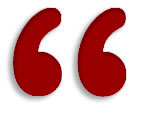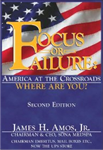When leaders make every decision based on numbers, without concerns for people, relationships and faith, they destroy the trust that makes success possible. How do you stay on the right path?
What underpins the success of American business? Anyone who knows me well knows that I have tremendous faith in the power of free people and free markets to improve the world. The U.S. became an economic juggernaut by giving people wide latitude to be industrious, to develop new goods and services, to trade freely and to build wealth. The freedom of American trade has made our country a dynamic worldwide economic leader, but free trade alone isn’t enough to stoke a thriving economy. At its very bedrock, free trade relies on virtue, wisdom, honesty and integrity.

When you trade your labor and expertise, you count on your business partner delivering something of value in return. When you hire an employee and promise a salary or wage, you count on receiving hard, honest work. When an employee agrees to work for a business, they count on being treated fairly. In each transaction, you must trust the virtue of others.
Sadly, that trust isn’t always rewarded.
Business leaders are constantly faced with decisions about how to guide their companies, and their decisions can sometimes be shaped by short-term quarterly profit considerations and the desire to maximize profits and bonuses. Stop and think about some of the biggest business scandals — Ken Lay and the shell entities that hid Enron’s debt until its collapse destroyed billions of dollars for shareholders and employees; or Bernie Madoff and his record-shattering Ponzi scheme built by abusing the trust he had accumulated on Wall Street — and you find executives taking shortcuts to reach their goals, choosing expediency over virtue.
Decisions like these are not made in a vacuum. Ken Lay didn’t walk into a board meeting one day and immediately decide to set up 3,000 SPEs to manipulate earnings. He and Jeff Skilling didn’t do that. Somewhere in a boardroom one day they were talking about that as a strategy and nobody spoke up to say “Wait a minute! There’s something wrong with that!” That’s how ethical failures happen.
In a healthy business with wise leadership, a set of core values informs decisions. And those values go beyond simply returning the largest possible financial reward to stakeholders. The values are centered around how the company’s activities affect everyone — customers, employees and stakeholders, and how decisions will affect the long-term health of the business.
But as we all know, wisdom doesn’t always inform decision-making.
What goes wrong?
The importance of wisdom and virtue

The Practical Wisdom in Management conference drew intellectuals and CEOs together to discuss the importance of morality and ethics in business.
Answering that question, and coming up with ways to bolster the ethics of future business leaders, was the focus of a conference I was recently invited to participate in at Yale University. The Yale Divinity School-Practical Wisdom in Management conference was organized by Ted Malloch, a Yale research professor who has written extensively on the importance of virtue in business, and it brought together dozens of intellectuals and CEOs to discuss how to bring more wisdom to the board room.
So what are business students being taught?
The London School of Economics recently asked its 3,800-person faculty what they hoped their graduates had learned, and the answers broke down like this: a third of the faculty said students should understand how to generate financial returns; a third said graduates should appreciate culture, integrity and morals; and a third said students should understand economic sustainability. Unfortunately, those values weren’t reflected in the curriculum!
A lot of business education is based on secular education standards that concern themselves with economic theory, metrics for understanding business performance, and how an executive can steer the business to get the numbers where they need to be. But one thing I learned very quickly as a businessman is that business theory is only a small part of the battles that unfold in the business world, and without strong morals to guide your decision-making, expediency can become a temptation, and succumbing to that temptation will destroy the trust that is vital for an organization to function. In essence, shortcuts can be tempting, but are often deeply unwise.
One of the surest ways to spot a great company is to look for one that operates from a common set of values. Great companies exist to do more than simply make money — they believe in the products and services they offer, and believe that their work makes the world better in a meaningful way. A company like Apple, for instance, wants to transform the world through technology. Coca-Cola is animated by a desire to bring more happiness into the world. Proctor & Gamble seeks to make life easier for consumers. Their financial returns come from adhering to the core values while making smart business decisions — and following the core values if a critical part of the process. If every decision is made on the basis of numbers on a spreadsheet, you’ve lost your way.
Spreadsheets and metrics will help you understand performance, but at the end of the day, the decisions that drive a business need to be about people — honoring your customers, your colleagues, your business partners and your stakeholders. The trust that’s built up in an organization is one of its greatest assets — and a deficit of trust can be a huge liability. The greatest management tool isn’t in a spreadsheet — it’s in personal integrity and a willingness to care and invest in other people and get them to work together toward a common goal. If you stay focused on that, you can guide your organization to not only to the boost the bottom line of stakeholders, but to improve lives.







